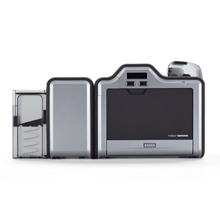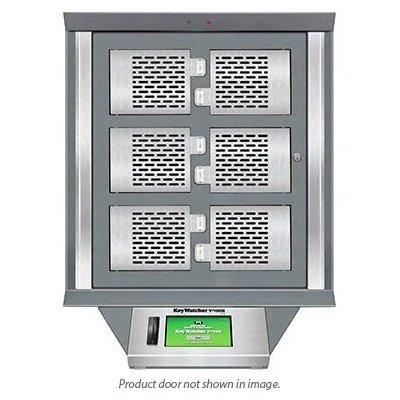To produce the smart cards needed by active and retired civil servants to gain access to the modernised payroll system, the Indonesian National Civil Service Agency deployed FARGO HDP5000 to address their needs.
Challenges
The State Employment Agency of Indonesia, Badan Kepegawaian Negara (BKN) is the government department that oversees all employment related issues for civil servants – active and retired – that are under the payroll of the Indonesian government. Indonesia’s civil service consists of some 4.6 million people.
The scope of work of the department is immense – all human resources processes from recruitment to retirement and everything in between including citizenship status and legal aid fall onto the shoulders of BKN. To ensure the department maintains a high efficiency in the face of increasing demands, it was imperative for the department to modernise their systems.
BKN began to develop a roadmap to increase its reliance on technology so as to improve its efficiency and reduce government spending. According to Bajoe Loedi Hargono, Director of System Information Development at BKN, the department saw its payroll system as the perfect point of entry. Soon later, BKN initiated the project to issue a smart card to all active and retired government employees. The smart card, named Kartu PNS Elektronik (KPE) card, was envisioned to deliver a wide breadth of functions, including providing access to salary or pension for the cardholders.
BKN needed sophisticated card printers for the project, as the KPE cards feature security chips that contain personal and bank information. On top of that, with both active and retired civil servants involved in this project, the quantity of cards which BKN had to produce was extremely high, and BKN wished to retire the old system and move all civil servants to the new platform as soon as possible. Besides quantity, quality was also important because once the civil servants get their new cards, their livelihood would then depend on them as they would have to use the cards to withdraw their pay from the bank, so the cards had to be highly durable and tamper resistant.
Solution
To initiate the project, BKN procured HID Global® FARGO® HDP5000 High Definition Printers/Encoders and deployed them in its offices across the country. “We decided to use printers from HID Global because, upon contacting their representatives, we felt that they had the most thorough understanding of our needs as a government department, and, of course, had the offerings to back up their understanding,” said Hargono.
 |
| The HDP5000 printers address one of the most common pain points for IT deployments – cost |
As one of the market’s most affordable and efficient reverse transfer printers, the HDP5000 produces high quality output by printing a reverse image on an intermediate film and then fuses the film onto the card. This approach enables the printer to produce cards without having its print head coming into contact with the output cards, preventing equipment damages in the printing process. In the event where the print head breaks down under normal operations, a lifetime warranty provides BKN with replacement parts, free of charge.
The reverse printing technology also means that the printer can print up to the edge of the chip integrated to the card, not affecting the contact points required for the KPE cards to work. The type of intermediate film chosen by BKN is also highly resistant to wear and tear, minimising the need for replacement cards.
Benefits
The KPE project at BKN has produced numerous benefits for the Indonesian government. The HDP5000 printers address one of the most common pain points for IT deployments – cost. The low operating costs associated with the printers has allowed BKN to issue KPE cards to all government employees while maintaining alean budget. Supplies procurement is also simplified, as now BKN sources all its printing supplies from a single local partner.
As the operations for the printers are highly intuitive, BKN did not have to spend a lot of time training its staff before they were putting the printers to good use. “The printers are very easy to use – it’s hardly different from printing a regular document. We can encode and print our cards effortlessly,” said Hargono.
"As a result of the printers’ high efficiency, currently 85% of the active staff and 65% of the retirees are already using the new KPE cards and are enjoying their benefits" |
Depending on the set quality of the output, HDP5000 is capable of printing up to 102 cards per hour. According to Hargono, as a result of the printers’ high efficiency, currently 85% of the active staff and 65% of the retirees are already using the new KPE cards and are enjoying their benefits.
“Since the department tied so many services to this card, such as health insurance, salary and pension, it would be unacceptable for daily wear and tear to render the cards unreadable. Fortunately, it isn’t something that is troubling us. Using the HDP5000 printers to produce our cards, we haven’t had any problems with damaged cards, barring extreme cases. The images on the cards were proved to be extremely high quality and durable, and we’re very pleased with them,” said Hargono.
Since the KPE cards serve a diverse set of functions, the Indonesian government can use the same card reading equipment across different locations. In addition, the Indonesian government can now easily manage all the civil servants’ personal data centrally for enhanced efficiency and better service delivery.
“The KPE project allows BKN to better serve Indonesia’s hardworking civil servants, and the HDP5000 printers are the engines behind its success. After we have completed the KPE project, we hope other government departments can look at us and recognise the benefits which technology can provide and follow in our footsteps,” said Hargono.



















